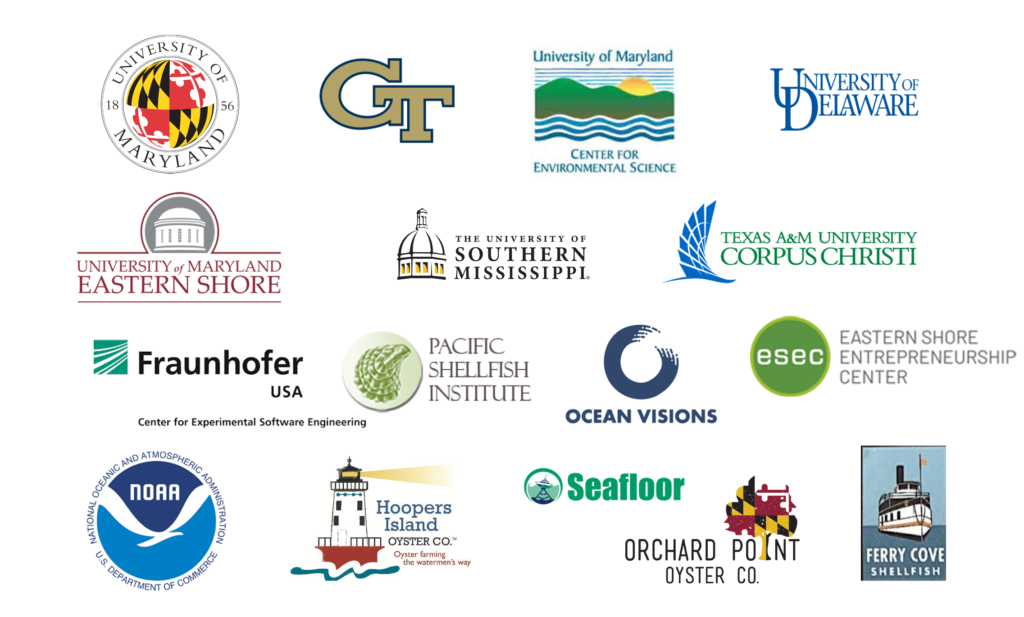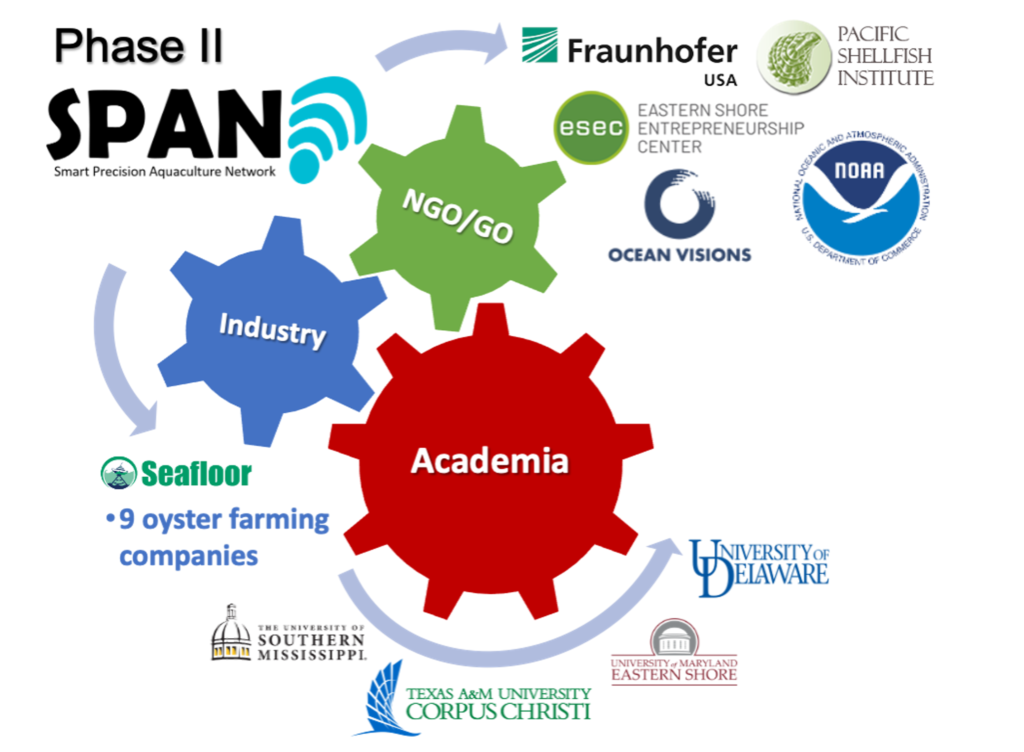
The lead institution, University of Maryland (UMD), is a Land and Sea Grant institution with a rich history of fisheries and aquaculture research in the Chesapeake Bay. UMD brings clusters of strengths in sensing, imaging, and robotics (Yu, Tao, Chopra), computer and data sciences (Aloimonos, Porter), and aquaculture extension (Webster, Parker). Each partner institution brings important expertise and capabilities. University of Maryland Center for Environmental Science (UMCES), a globally eminent institution for advancing environmental sciences, along with University of Delaware (UD), will bring exemplary strengths in marine ecology (Gray, Lyubchich), biogeochemistry (Testa), oceanography (Trembanis), and economics (Wainger) and world-class environmental and marine research facilities situated on the Chesapeake Bay. Georgia Institute of Technology (GA Tech) will bring expertise and infrastructure in marine robotics and underwater communications (Zhang) and contribute expertise in ocean and climate sciences (Di Lorenzo). The University of Maryland Eastern Shore (UMES), a historically black college and university (HBCU) and an 1890 land-grant institution, with exemplary success in fostering diversity in science and engineering, will bring expertise in remote sensing and lead the team’s broadening participation effort (Jin).
Our team is further strengthened by partnerships with Non-Governmental Organizations (NGOs, governmental organizations (GOs),and additional academic partners. Fraunhofer USA CESE will bring extensive strengths on software development (Porter). Pacific Shellfish Institute (PSI) along with University of Southern Mississippi (USM) and Texas A&M University-Corpus Christi (TAMU-CC) will strengthen the team’s shellfish ecology and socio-economics expertise and help with stakeholder engagement in the West (Hudson) and Gulf coasts (Gima, Yoskowicz). In addition, partner with National Oceanic and Atmospheric Administration (NOAA) will allow the team to access NOAA’s existing data and models (Bricker).

SPAN will be accomplished through convergence research empowered by transformative technologies (e.g., Internet of Things (IoT), robotics, artificial intelligence (AI), and big data), scientific discoveries in marine biology, biogeochemistry, and climate and ocean sciences, and stakeholder-driven economic development. A transdisciplinary team with diverse expertise in Engineering (Yu, Tao, Zhang, Chopra, Jin), Computer and Data Sciences (Aloimonos, Porter, Lyubchich), Biology and Environmental Science (Gray, Testa), Climate and Ocean Sciences (Di Lorenzo, Trembanis), Aquaculture (Webster, Parker), and Economics (Wainger) and readily engaged stakeholders from three US coasts (East, West, and Gulf) will be brought together to pursue four interconnected objectives.